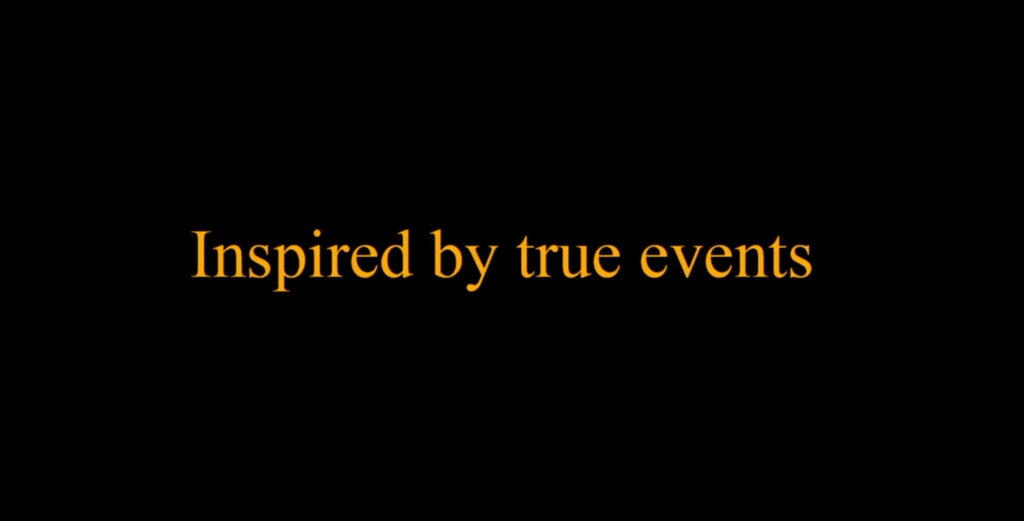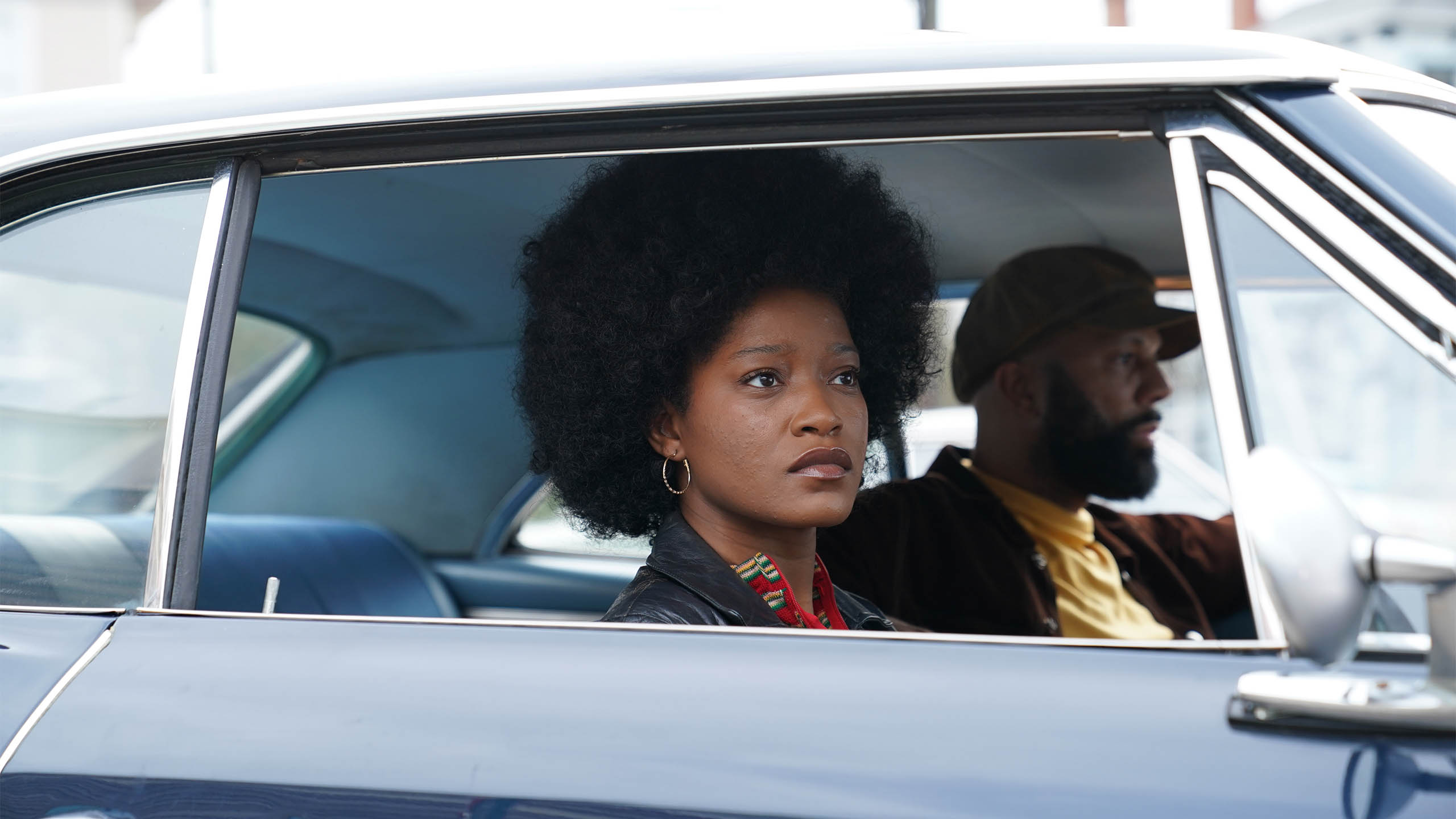Let’s Have an Alice Movie Discussion… because I just finished the movie, and there is a lot going on here. Oh, and because I’m not really digging the counter arguments to the film. Sure, I didn’t love it… mainly because of the enormous leap the movie makes in the last 20 minutes. But there were also a ton of really interesting, and fascinating, conversation points here.
First, have you not heard of Alice yet? Well, if you take the movie Antebellum… and craft a love child from the spawn of Jackie Brown… you have Alice. Wait, WHAT? Yeah. I think I nailed it actually. Antebellum + Jackie Brown = Alice. Here, you’ll see what I mean in this trailer pretty quickly:
Don’t think I’m going to do a deep dive walkthrough of this particular movie. The trailer pretty much spells the whole movie out, and it’s not leaving much to the imagination. I’ll speed run it for you so we are all on the same page though. Again, not specifically recommending watching the movie per se, but it does have a ton of interesting things to say – that I’ll get into later.
Alice Movie Speedrun
In this Twilight Zone world, a woman, Alice, played by Keke Palmer – is enslaved on a 19th century Georgian plantation. (OR IS SHE??) We watch as their owner does horrible things to them – murder, rape, brutalities. Eventually Alice escapes, and realizes that it isn’t 19th century Georgia, but rather that it’s 1973. Alice meets a truck driver (played by Common), who thinks she has lost her mind. He helps her to figure out modern life… and eventually, Alice persuades him to go back to the plantation in order to exact revenge on the wicked plantation owner (played by Johnny Lee Miller). Wherein she shoots the plantation owner a couple times… non-fatally, and then the cops, fire engines, ambulances arrive… roll credits.
What I Didn’t Understand About Alice
The main reason I’m talking about this move – despite my initial lackluster response to the turn, and conclusion, is the reception this movie is getting. I’m seeing comments online about the movie… fairly dark and hate-filled comments, about the movie over all. But here is the thing that is really interesting, and that I didn’t fully grasp about this movie, in spite of the quote at the front of the movie that states:

I slid right by this screen. Oh OK, slavery happened. Got it. How much could this movie – the Jackie Brown of Antebellum be based on real events? Not possible. So I moved on. But here’s the thing. This movie actually has a point to make. A really good one… right up until it throws the point in the nearest dumpster.
The story, that the movie is based on, is that of Mae Louise Walls Miller. She was a 14-year-old slave, living the life of servitude on a Georgian plantation in an 1800’s-esque lifestyle. Only glitch? The year was 1963. This is fact. This occurred. (How much of this story is fact will be a question we will get into later.) Now, I don’t know how clued into American history you are – but – that is, in a word, illegal. I mean, it’s immoral, reprehensible, outrageous in every way… but was also illegal in 1963. The Emancipation Proclamation happened in 1863. And peonage (slavery) was outlawed in 1867. Now, math isn’t my strong suit, but 1963 is AFTER 1867. Right? Almost a hundred years afterwards. 96 years later to be clear.
So, here is the really tragic, and eye-opening thing about this movie. For almost a hundred years after slavery was made illegal, there were people that were still enslaving other human beings here in this country. The most horrific thing about all this is, that people today, right now, talking about this movie Alice, are saying that this movie is just another in a long string of woke-ist propaganda. The really sad thing here, is that the movie shot itself in the foot by adding the Jackie Brown component to the movie. It should have just told the story of Mae Louise Walls Miller. What is the full story of Mae Louise Walls Miller?? Well, it’s brutal. And awful. And reprehensible. But damn – it would make an eye-opening story.
What is Mae Louise Walls Miller’s Story
Cain Wall, signed a contract that he couldn’t read, and had no idea what it was that he was signing. Not only that, but it ended up sealing his entire family’s fate as well. The Wall family unwittingly enslaved themselves to do field and house work for a group of families in the area. All families that attended church together – I might add. I say this, and I’m a devout Christian. This? This is just unbelievable to me. At this time, peons were forced to live on the owner’s land, which made it impossible for them to ultimately pay off their debts. Rent? $300. Pay $5. Huh. I wonder why your debt keeps going up? Strange that.
Regularly, Cain and the entire family were beaten with chains and whips. Years later, they would tell of how the chain, as it hit them, would completely wrap around their bodies as it hit them, and it would knock them down. They weren’t fed. They drank from creeks. Their family ate wild animals and leftovers from the family that was raked up from a dishpan, like slop. “They treated the dogs a whole lot better than they treated us,” Mae once said.
Mae had zero idea that her life was different from other children across the United States. She didn’t have TV, she wasn’t allowed to leave the plantation. And regularly, her family was beaten by the land owners where they lived. As she got older, she would be told that she needed to come work at the house with her mother at the Gordon house. When she arrived, she would be raped by whoever happened to be present at the Gordon family home at the time. Worse, she would regularly be raped simultaneously, and alongside, her own mother.
Cain, unable to take the chaos, and pain of their situation anymore, ran for his life. His hope was to get a job in the army, and just keep running from this hellscape. But soon after he left the plantation, he was picked up by people alleging that they would help him, but instead, they sent him back. Immediately upon his return, he was severely beaten in front of his family. Eventually, Mae decided she wasn’t going up to the house anymore. At the age of 18, she was done.
Mae had said that she didn’t run previously because “What could you run to? We thought everybody was in the same predicament.” Mae recounted first running away at 9-years-old, but she was returned to the farm by her brothers, where her father told her that if she ran away, “they’ll kill us.” Ultimately, Mae refused to do housework for another family in Kentwood, LA, and ran away after the owner threatened to kill her. “I remember thinking they’re just going to have to kill me today, because I’m not doing this anymore.” In early 1961, an aunt of Mae’s from northern Alabama “sneaked us away” on a “horse and wagon” and helped them to relocate.
If you’d like a justice slanted ending to Mae’s story, then tell the real story of how Mae’s story ended. In 2003, Mae and her family, joined a class action lawsuit looking for reparations for the descendants of enslaved people from a number of different private companies. How did that lawsuit end? A year later, the judge dropped the lawsuit. That’s your ending. THAT’s is the perfect ending. Why? Because it is a metaphor of the horrific treatment this family faced throughout their life. Worse, it is a metaphor for the injustice that slaves experienced throughout their lives. Now THAT would be a story to end all stories.
My Thoughts on the Movie Alice
The first 80% of the movie is really interesting. Watching Alice as she tries to cope with the world outside the plantation was really interesting. She read copiously, trying to understand what it was that had just happened to her, and the history of slavery – the abolition of slavery more specifically – that had somehow missed them. Watching as she’s considered insane, and is about to be institutionalized for her obvious mental failings. It’s a metaphor! An allegorical tale about the horrors of her life. And what is really interesting is that the movie was SOFT on the slave owners. Mae’s story is a shit-show compared to this light candy handling of what really happened in her life. (She started getting raped at five.) Personally? I want to DOX these families it so angers me. Don’t think it’d be hard to do, just would require looking up the legal case Mae and her family brought against them, and then just look up their names and addresses.
So, did I like the movie Alice? No. No, I didn’t. But it could have been so much better than it was. I can’t resolve the disjointedness of the ending and the beginning. But it doesn’t mean it isn’t worth our time, or our thoughts. And that explains why I’m giving this awful movie a 5.0 score. Why? Because if I can support Mae in just a small vote of solidarity, her memory, and her family? I want to. This world wronged her horribly. And this wrong needs to be righted somehow..
Edited by: CY



